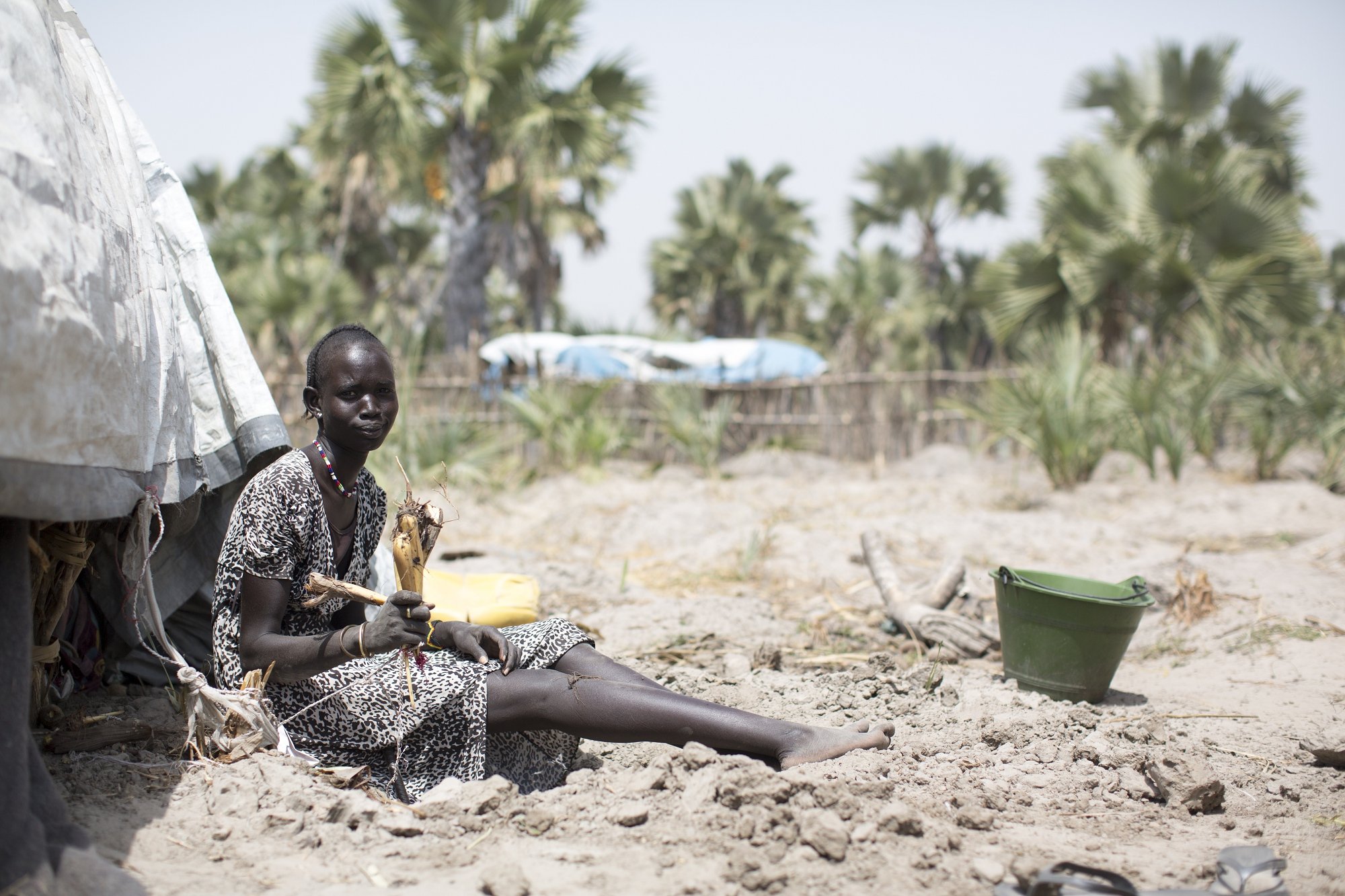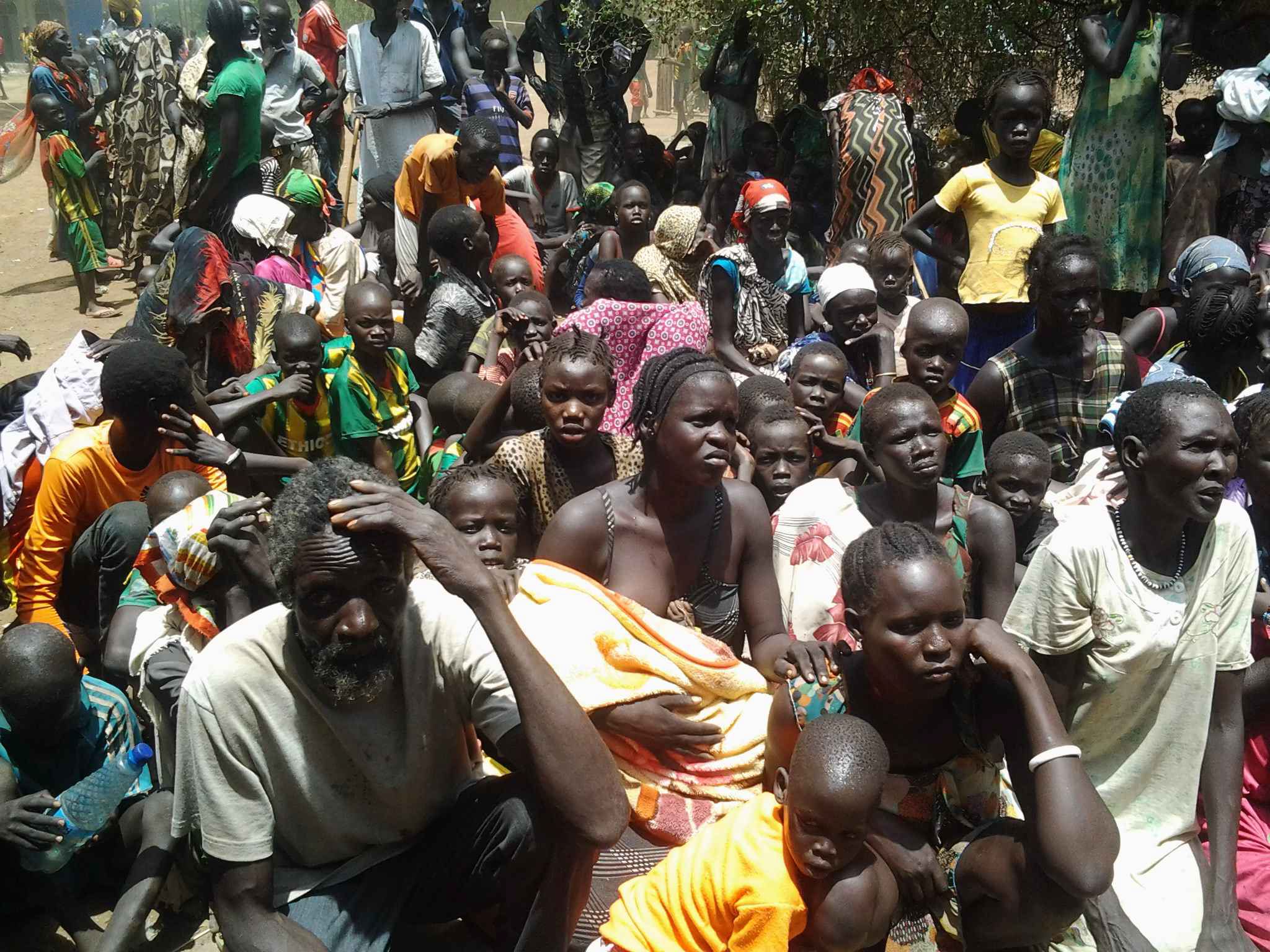Refugees help skeleton UNHCR staff keep camps going in South Sudan
Refugees help skeleton UNHCR staff keep camps going in South Sudan

BUNJ, South Sudan, January 8 (UNHCR) - Refugees have turned security guards and UNHCR security officers become substitute water pump technicians as everyone scrambles to keep life running smoothly for 120,000 refugees in South Sudan's Maban County.
It's vital that everyone pitches in because fighting in the north-east of the country has cut road routes to Maban, home to the largest refugee camps in South Sudan. "We all go to the camps every morning and do whatever we can," says Adan Ilmi, a 22-year veteran of UNHCR who heads the agency's operation in Bunj, serving four of the six camps for Sudanese refugees in South Sudan.
Working with about one-fifth of his normal staff - 18 officers instead of 85 - he's been relying more on refugees to take over many duties since the world's youngest country descended into violence on December 15.
"We are mobilizing the community to help us," stresses Ilmi, reached by phone from the South Sudan capital, Juba. Refugees who had been trained as water pump technicians now are taking the lead in helping UNHCR staff members - including Ilmi himself, a UNHCR field safety advisor and others - keep the pumps working in the camps so that refugees have clean water.
Top priority for the UN refugee agency is just to show up in the camps. "It's very important to go to the camps Sunday to Sunday to reassure the refugees we are still here with them," he says. "We go to the market, visit health centres and water points, talk to the refugee leaders, youth and women's representatives. They got anxious after many NGOs [non-governmental organizations] pulled out and if they don't see UNHCR staff, they get worried."
With the possibility that this area could yet be totally cut off by fighting, UNHCR and its sister agency, the World Food Programme, recently distributed food rations for 45 days instead of the usual 30. A UNHCR biometrics system allowed refugees to accurately identify recipients and largely run the distribution themselves.
Refugees in the camps - who come from neighbouring Sudan's Blue Nile state - have stepped forward to take on more duties, including guarding warehouses packed with supplies belonging to UNHCR and some agencies that left after the violence erupted between government and opposition forces.
"This initiative is very positive," says Ilmi. "Refugees have taken control of the situation. They are making sure nothing is being touched. There has been no looting at all."
Since Sudanese refugees began arriving here after independence in 2011, the UN refugee agency trained many of them in water management, camp management and health care with a view to eventually reducing the number of international staff needed to run the camps. No one imagined the plan would be tested so suddenly.
"It's a great delight that they have lived up to the task," says Cosmas Chanda, UNHCR's representative in South Sudan. "We need to recognize the goodwill and high sense of responsibility of the refugees. It is highly commendable."
Ilmi does admit that refugees worry about their future in case the fighting - which has spread to seven of the country's 10 states - continues for a long time. But he says morale among his staff is high, and there are no signs that humanitarian workers or refugees in these camps are being targeted despite fighting just 60 kilometres away.
Chanda praises the commitment of his staff in Bunj to continue delivering services despite the nearby fighting. "Everyone admires the courage and determination of the remaining staff members," he says. "We salute their bravery."
Ilmi says his previous service with the UN refugee agency in trouble spots such as Afghanistan, Kosovo, and Bosnia and Herzegovina, gives him strength to go on. And it has taught him one important lesson: "Never panic."








